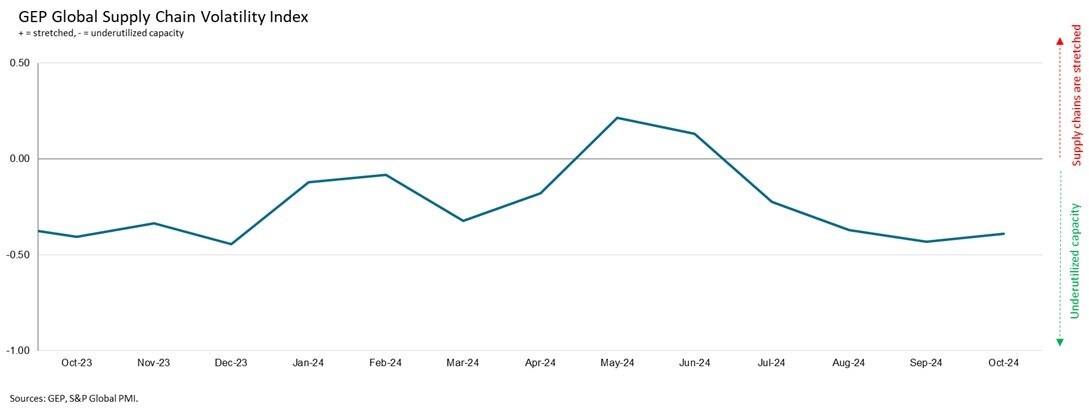IRVINE, Calif., Feb. 21, 2025 -- Filing and paying one's taxes can be momentarily painful. After all, there are very few people who can make a significant tax payment and not wonder about all of the other things they could have used the money to purchase or cover. And yet, millions of Americans file and pay their taxes on their own initiative each and every year not concerned with the tax penalties for not filing tax returns. The simple fact of the U.S. system of taxation is that it leans very heavily on voluntary compliance by taxpayers – at least at the outset.
An estimated 20 percent of the total tax gap is created by the failure to file and non-filers of taxes. There are generally two types of non-filers: the true non-filer who has never filed taxes and a stop-filer who filed taxes for a time but ceased their filing and payment of taxes. These individuals are likely to face the enforcement mechanisms of the U.S. Tax Code through contact and interactions with the IRS and Department of Justice (DOJ). Taxpayers who fail to satisfy their tax filing and payment obligations are, upon conviction, subject to harsh and significant criminal and civil tax penalties.
If you fail to file your tax returns by the required deadline, typically April 15th, for your IRS returns, you are opening yourself up to the possibility of civil and criminal tax penalties being assessed against you in addition to the back taxes that you owe. It is important to note that you can file for an extension, which will usually be granted if good cause exists, but this must occur before the due date comes. If not, you will, at a minimum, be required to file the past due return and pay any back taxes assessed based on the documents you submitted. Our skilled dual-licensed Tax Lawyers and CPAs at the Tax Law Offices of David W. Klasing may be able to work to convince the agents not to impose additional civil or criminal tax penalties based on a reasonable cause argument for why you missed the deadline, such as the unexpected occurrence of a medical emergency in the weeks before the returns were due.
In many cases, however, the IRS can and will choose to impose civil penalties for a failure to file your tax returns on time. These penalties are calculated as follows: if you are a partial month or one whole month late, the penalty will be 5% of the amount of your unpaid taxes each month you have been delinquent. This is upped to 10% per month you were delinquent if you were late for two months (or one full month and one partial month), and so on, with a five percent increase per each month, the taxes remain unpaid, capped at 25%.
In cases where your conduct was willful, meaning you deliberately failed to file your tax returns rather than making a mistake or an oversight, life-altering criminal tax charges can also apply. If convicted of willful failure to file taxes, you could face penalties including up to 1 year in jail (per count) and up to $25,000 in fines, or $100,000 in fines in the case of a corporation that has willfully failed to file. The longer you wait to file after the deadline has passed, the greater the chance becomes of the IRS choosing to open a high-risk audit such as eggshell or reverse eggshell audit or exponentially worse criminal tax investigation by the IRS-CID into your behavior instead of simply allowing you to pay your back taxes and move on.
IRS Launched Aggressive Enforcement Program Against High-Income Tax Evasion
In February 2024, the IRS launched an aggressive program to combat tax evasion among high-income taxpayers. This initiative focuses explicitly on individuals earning over $1 million annually who have not filed returns since 2017. Backed by funding from the Inflation Reduction Act, the IRS has issued over 125,000 CP59 compliance notices. These notices inform recipients of their outstanding tax liabilities and warn of forthcoming audits, enforced collections, and potential felony charges if they fail to comply.
To enhance its enforcement efforts, the IRS is utilizing advanced data analytics, artificial intelligence, international partnerships, and information provided by whistleblowers. These resources are being used to recover hundreds of millions of dollars in unpaid taxes. Additionally, specialized IRS units are dedicated to exposing sophisticated evasion strategies, including the concealment of assets abroad.
Failure to comply with this initiative may result in severe civil and criminal tax penalties, including wage garnishment, federal tax liens, and criminal tax prosecution, which can lead to substantial fines and extended prison sentences for willful tax evaders. The IRS's enhanced enforcement measures and increased funding underscore its determination to address tax evasion, particularly among affluent individuals, partnerships, and corporations.
Criminal Tax Exposure and the Risk of Jail Time
Errors on your federal or California state income tax returns can lead to severe criminal consequences if they cross the line from negligence to willful fraud. Facing an IRS or state audit is unnerving enough, but when your returns exhibit a multiyear pattern of serious inaccuracies—especially those that suggest intentional underreporting or fraudulent behavior—the risk of criminal tax prosecution escalates dramatically.
Note: When you finally reenter the system with as many as 6 years of tax returns under the IRS's non filer policy, your odds of state or federal tax audit sky rocket. Don't exponentially compound your criminal tax exposure as a non-filer by cheating on the way back in. We can help make sure all the T's are crossed and i's are dotted.
While honest mistakes are typically remedied through civil penalties (for example, a 20% accuracy-related penalty on understatements over $5,000 plus accruing interest), deliberate misreporting can trigger investigations by the IRS Criminal Investigation Division (CID) or state tax criminal units like the California Franchise Tax Board (FTB). These investigations are not only time-consuming and costly but may also lead to referrals to the Department of Justice and, ultimately, jail time. For instance, if the IRS or FTB determines that you have underreported income by $10,000 or more—especially if corroborated by mismatches in 1099s, W-2s, or bank deposits—an auditor may consult a Fraud Technical Advisor, potentially resulting in a criminal tax referral.
Key red flags that can convert a routine audit into a criminal investigation include significant unreported taxable income, exaggerated deductions, and a persistent multiyear pattern of noncompliance. In high-risk "eggshell audits," where the taxpayer is already suspected of deliberate evasion, even a minor misstatement can serve as the "last affirmative act of fraud," tipping the scales toward felony tax evasion charges. Federal sentencing guidelines indicate that a tax loss of $30,000 may result in about one year of imprisonment—a clear signal of the significantly harsh penalties in store for willful misconduct.
In this high-stakes environment, the distinction between mere negligence and willful fraud is critical. Taxpayers who have made genuine errors and corrected them promptly through voluntary disclosure have a far better chance of avoiding criminal tax charges. However, if you suspect that your tax returns reflect not just mistakes but intentional deceit, it would be wise to secure the representation of a seasoned dual-licensed criminal tax defense attorney & CPA immediately.
How to Seek Penalty Relief
If you face a failure-to-file or failure-to-pay penalty, you may qualify for:
- First-Time Abate (FTA): If you usually file on time and haven't incurred penalties in the past.
- Reasonable Cause: If circumstances beyond your control prevented you from meeting tax obligations. Prompt partial payments can help demonstrate good faith.
- No Abatement of Interest: The IRS rarely waives interest, which compounds until the balance (including penalties) is paid off.
In order to ensure all legal requirements are being met, the best course of action in such a situation would be to consult the Tax Law Offices of David W Klasing. For a taxpayer to request abatement, they must submit a request before the applicable limitation period. For help with a tax penalty issue, contact a tax attorney who is well-versed in the nuances of resolving it. Our dually licensed Attorney CPAs are well-versed in the IRS policies and procedures, and we will make every effort needed to settle the case in your favor. Contact our tax firm online, or call (888) 640-3408 or fill out our online form to schedule an initial rate-reduced appointment.
How Can a Tax Attorney Help Me with My Failure to File Taxes?
At the Tax Law Offices of David W. Klasing, our skilled Tax Attorneys and CPAs have decades of experience working with clients who have not filed their returns on time or requested an extension to get them back into IRS compliance with the most minimal amount of negative consequences. Especially if your conduct was non-willful or has yet to be referred for a criminal tax investigation, we can work to convince the agency that you had reasonable cause to miss the deadline and that you should not have any penalties assessed if you pay your back taxes and file the returns and any necessary documents. If civil tax penalties are imposed, we can try to work out a reasonable payment plan with the IRS so that you can pay the fines over a more extended period.
If your conduct was willful, our priority as Criminal Tax Defense Attorneys will be working to ensure that you do not end up facing life-changing criminal tax charges for your actions. Come to us before a high-risk audit or criminal tax investigation is initiated, and we work to help you correct the issue on your own. There will be a good chance that you will not face criminal tax prosecution for your actions if you strictly follow our counsel. To date we have never had a non-filer that we brought back into the system prosecuted by the IRS or a state government. The longer you wait to come forward, especially if a clandestine criminal tax investigation has already begun or occurred, the more complex our job of staving off the filing of criminal tax charges will be, but not impossible. If criminal tax charges ultimately are filed against you, we can try to negotiate a deal for you to pay what you owe plus civil fines in exchange for the charges against you being dropped. If all else fails, we are ready to mount a vigorous defense on your behalf at trial or do damage control through a cooperation-based defense, depending on the unique facts and circumstances of your case.
What to Do When Facing Tax Penalties Due to Unfiled Taxes?
At the Tax Law Offices of David W. Klasing, our dual-licensed Tax Attorneys and CPAs bring decades of experience in both civil tax matters and criminal tax defense. We understand that while the IRS relies on voluntary compliance, the consequences of non-filing or fraudulent reporting are severe—ranging from substantial civil penalties to potential jail time. Our team is uniquely positioned to help you navigate these treacherous waters.
If you have unfiled returns or suspect that errors on your tax returns may be viewed as willful fraud, we will work with you to develop a strategy that minimizes penalties and protects your freedom. We assist clients in proactively addressing compliance issues through voluntary disclosure programs, which can significantly reduce the risk of criminal tax prosecution if you come forward before the IRS initiates an audit or criminal investigation. In cases where a criminal investigation is already underway, we are prepared to mount a vigorous defense, negotiate settlements, or arrange installment agreements to help you manage your liabilities.
Our experience extends to managing complex situations where discrepancies across multiple tax years or entities raise red flags with the IRS or California state taxing authorities. We know how to coordinate with forensic accountants and leverage our deep understanding of federal and state tax law to mitigate your exposure to additional fines, interest, and even imprisonment. Whether you face a routine civil tax audit that has escalated into a potential criminal matter or a targeted IRS-CID investigation due to substantial underreporting, the Tax Law Offices of David W. Klasing is your best ally in safeguarding your financial future.
The longer you delay addressing these issues, the greater your risk of encountering life-altering consequences. Immediate action is essential—if you are facing, or suspect you may be facing, IRS or state criminal tax scrutiny, contact our office at once. Our comprehensive approach is designed to help you correct your filing history, negotiate with the IRS, and ultimately avoid the harshest penalties available under the law. To schedule a reduced-rate initial tax consultation, call our firm at 888-904-4096 or contact us online today.
Here is a link to our YouTube channel: click here!
See our Non-Filer Q and A Library
See our Audit Representation Q and A Library
See our Criminal Tax Law Q and A Library
Public
This News is brought to you by Qube Mark, your trusted source for the latest updates and insights in marketing technology. Stay tuned for more groundbreaking innovations in the world of technology.







